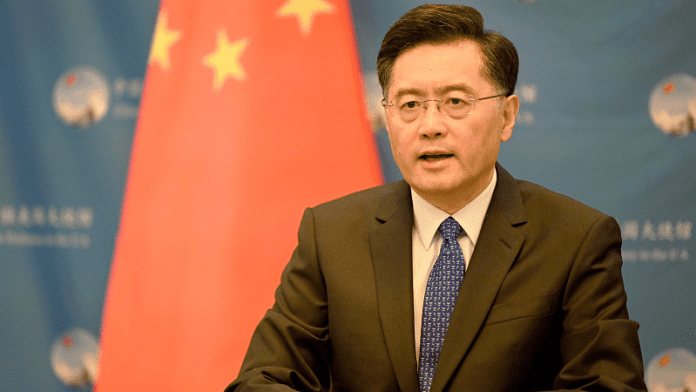On January 9–16, 2023, China’s new foreign minister Qin Gang travelled for the first time to five African nations: Ethiopia, Gabon, Angola, Benin, and Egypt.
The major developments that unfolded during the visit are listed below:
- Disease Control Center and Reconstruction and Rehabilitation efforts in Ethiopia: During his visit to Addis Ababa, Ethiopia, Qin opened the new Chinese-built $80 million African Centers for Disease Control — part of China’s “health silk road” project. Initially, meant to be a collaboration between China, the US, and Africa, but due to the escalating tension between Beijing and Washington, it did not come through as envisioned.
- Until the two-year war in Tigray, hundreds of Chinese workers and businesses were operating in the area but had to evacuate eventually. Qin has pledged support for reconstruction efforts underway in the region.
- Debt Reduction: With a $13.7 billion debt to China, Ethiopia is heavily leveraged. According to reports, Qin announced a partial debt reduction during the visit. However, the amount of forgiven debt was undisclosed. China has always been committed to assisting Africa in reducing its debt burden, stated Qin, despite the West’s repeated accusations that it is using a “debt trap” to acquire power in developing nations.
- Increased Engagement-Economic Community of West African States:
The agenda behind visiting Gabon and Benin was to mainly increase engagement by currently building an Economic Community of West African States (ECOWAS) headquarters. Qin said, “My proposal is that we work together to promote synergy between Benin’s strategic development plan and the Belt and Road Initiative to identify more fields of action and growth rates for our cooperation. I am thinking for example of infrastructure, agriculture, human resources training, manufacturing, and peace and security.” - In Luanda (capital of Angola), Qin marked the 40th anniversary of diplomatic relations between China and Angola. Although Angola (one of the largest producers of oil in Africa) is a strategic security partner of China, it is also heavily indebted to China hence there are claims that a similar discussion to the one in Ethiopia, regarding reducing debt was discussed.
- Tourism Cooperation, Investment and Capital: Finally, he concluded his tour in Egypt, which was arguably the most significant stop of all. Egypt is strategically important to China because of the Suez Canal and its numerous investments there, including a multibillion-dollar agreement, on the construction of a new administrative capital outside Cairo, which will house Egypt’s government offices and eventually 5 million people. Around 3000 locals were employed throughout the project’s construction. The incomplete structure is now the tallest in Africa.
- Egypt is drowning in foreign debt, including what it owes to China (more than $7 billion). The depreciated Egyptian pound has lost 35% of its value relative to the dollar since October. Also, post the Russia-Ukraine War, Egypt’s tourism industry, which relied heavily on Russian and Ukrainian tourists, dried up. Food and energy prices soared, wheat and oil imports skyrocketed, and foreign investors fled. Hence, the timing could not have been better with Qin visiting and offering help to the region.
“We look forward to increasing the number of tourists,” he said, noting that “Egypt welcomes Chinese tourists, providing them with all means of comfort and security, as well as allowing them to enjoy what Egypt offers them by embracing a third of the world’s monuments and the ancient Egyptian civilization.” Egypt’s reaffirmation of its commitment to the one-China principle is greatly appreciated by China, which also supports Egypt in choosing a development path appropriate for its own national interests and in safeguarding its national sovereignty and security. - China has invested around $160 billion in infrastructure projects in Africa during the last 20 years. This recent trip to Africa seems to be Beijing’s response to the meeting between African leaders and US President Joe Biden in Washington last month. To aid the resource-rich continent in developing in the areas of health, infrastructure, business, and technology, Biden promised both public support and private investment.
“France, Russia, the US and China are all courting African countries – both for diplomatic support in organs like the UN, but also as economic and political allies and partners,” Stephen Chan, a professor of world politics at the University of London’s School of Oriental and African Studies (SOAS) told Al-Jazeera.




